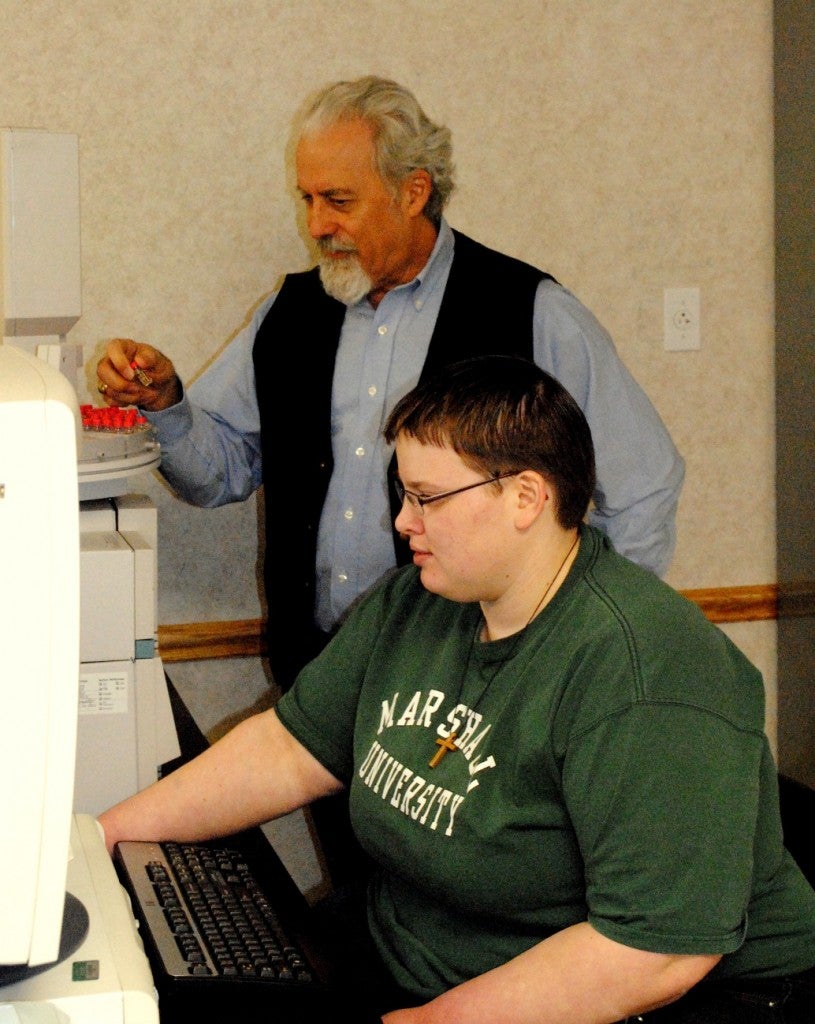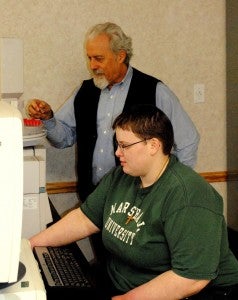
FOR IMMEDIATE RELEASE
Friday, June 10, 2011
Contact: Mary Thomasson, Public Information Officer, Marshall University Forensic Science Center 304-691-8961
HUNTINGTON, W.Va. – Dr. J. Graham Rankin, a forensic chemistry professor in Marshall University’s Forensic Science graduate program, has been selected as chair-elect of the Criminalistics Section of the Mid-Atlantic Association of Forensic Scientists.
He will assume the chair position in May 2012 following next year’s meeting in Ellicott City, Md. During his term as chair-elect, he will be responsible for organizing the presentations in the Criminalistics Section for next year’s meeting and assisting the current chair, Susan Stanitski of the Virginia Department of Forensic Science.
“Criminalistics is the branch of forensic science concerning the analysis and interpretation of physical evidence such as drugs, fire debris, explosives residue and other trace evidence,” said Rankin. “It is an honor to be selected for this position by one’s peers, who are working at the laboratory bench every day processing evidence from crime scenes.”
Rankin also presented two papers based on work of Amber Rasmussen and Amanda Heeren, who are 2011 graduates of the Forensic Science graduate program. During the summer of 2010, Rasmussen developed a method for the analysis of the active ingredients in marijuana mimics, also known as “spice,” while she was an intern with the Kentucky State Police Eastern Laboratory Chemistry Section in Ashland, Ky. “Spice type” products are plant material coated with one or more synthetic compounds that have similar hallucinogenic properties as marijuana when smoked. These products were made illegal at both the state and federal levels earlier this year.
Heeren, who has worked in Dr. Rankin’s lab for the past two years, studied the effect of various charred wood substrates on the interpretation of ignitable liquid residues in fire debris. Her work was instrumental to the receipt of a major grant from the National Institute of Justice by Rankin last fall.
Both projects are being continued this summer by graduate students in Rankin’s lab at Marshall.
